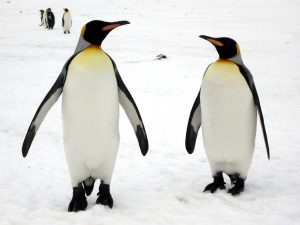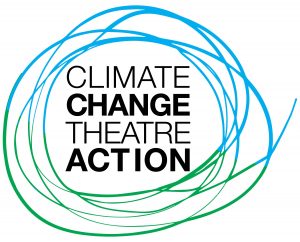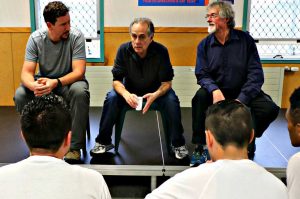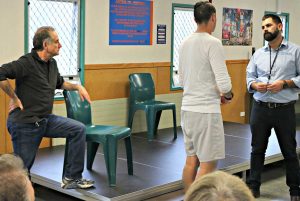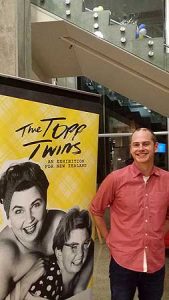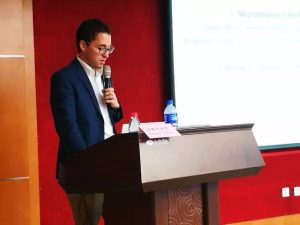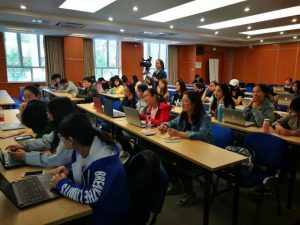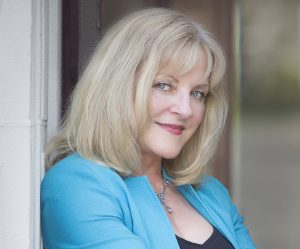In your white shirts and black tails, in your navy-blue dresses or in wetsuits and flippers or anything ‘penguin’ from your wardrobe please come and join us on a waddle, a ‘becoming penguin’ performance walk. If you have nothing penguin in your wardrobe, come with a penguin state of mind and we will supply you with some penguin apparel.
Category Archives: Campus

Still Waving: New Voices Climate Action Creative Writing Competition
Write, inspire and win! As part of our Climate Change Theatre Action 2017 event, ‘Still Waving,’ the Massey University School of English & Media Studies and Pukeahu ki Tua: Think Differently Wellington are proud to announce a climate action creative writing competition for new and emerging writers.
Prizes:
1st place – $300
2nd place – $200
3rd place – $100
Thematic guidelines
The creative writing competition aligns with Climate Change Theatre Action’s global theme, which is that “climate action requires a hopeful vision of the future”.
CCTA 2017 asks the question: “How can we turn the challenges of climate change into opportunities?”
We are looking for creative writing that provides hope, inspires positive action, and illuminates individual and collective solutions. There is still time to change the course of climate change: it is not too late, but it will require a collective will the likes of which planet earth has seldom seen. How can you use your writing, your particular voice, to help people visualise, embrace and achieve that change? What specific images can we find to illuminate why people should care about the environment? How can we move people without preaching to them or becoming didactic?
Politics is a surface in which transformation comes about as much because of pervasive changes in the depths of the collective imagination as because of visible acts, though both are necessary. And though huge causes sometimes have little effect, tiny ones occasionally have huge consequences. . . (Rebecca Solnit)
Genre:
We are accepting five types of entry:
- Twitterature (tell a story in no more than 140 characters)
- Flash Fiction 100 Words (tell a story in exactly 100 words – no more and no less)
- Poetry (any length up to 200 words)
- Short stories of up to 1200 words.
- Personal essays of up to 1200 words.
To enter:
Please email your entry in the body of an email to climateactionwriting@gmail.com by 5pm (NZ time) on Friday October 6, 2017.
Entry is open to all new and emerging writers. We take this to mean anyone who has not published a book. By entering you agree to publication of your entry and your name in social media. You may enter as many different items as you like. Please include your full name and the city or town you live in, with your entry.
The judge:
We are grateful to Dr Ingrid Horrocks from the School of English & Media Studies for agreeing to judge the Still Waving Climate Writing competition. Ingrid’s creative publications include two collections of poetry, a number of personal essays, and a genre-bending travel book.
More about Still Waving:
Still Waving, our 2017 Climate Change Theatre Action Aotearoa event, will take place on October 23 at Massey Wellington campus. There will be plays, readings, a performance art installation, and of course the prize-giving announcement of the fabulous winners of this competition! Still Waving is part of the global Climate Change Theatre Action 2017, which involves 50 selected plays (including two from our school) and more than 180 events in 41 countries. This is the second time we have participated in CCTA and we are delighted to be back! Check it all out at: https://www.facebook.com/events/163701054197372/
Theatre workshop “outside the box” for prisoners
Topp Twins ‘striking example’ of power of popular culture
Auckland Writers Festival – 16-21 May 2017
Four writers associated with the School of English and Media Studies are presenting at this week’s Auckland writers’ festival at the Aotea Centre. Do go along to support them if you can!
Tina Makereti: “Poutokomanawa — the Heartpost,” free public lecture on Māori and Pasifika writing – Wed. 17 May 5 pm
Gina Cole, PhD student in Creative Writing: Gala opening, 18 May 7 pm and “Pacific Tales” 19 May 2:30 pm
Hannah August: Chair for a discussion with Lloyd Geering and A.N. Wilson, 20 May at noon
Sue Wootton, graduate: “Matters Medical” 20 May at 4:30 pm
More information and venues at: http://writersfestival.co.nz
Auckland Writers Festival – 17 May 2017
Tina Makereti will be speaking at the Auckland Writers Festival next week, Wednesday 17 May. It’s a free event so please do pop along if you can.
Visiting Fellow – Peking University
David Gruber was recently chosen as one of ten Visiting Fellows to The New Zealand Centre at Peking University, 2017 (http://nzc.sfl.pku.edu.cn/10VFS.html). As a result, in April, he traveled to Peking University in Beijing and delivered an invited talk entitled, “Neuroscience and the Media.” He discussed his own research into the public understanding of neuroscience and outlined future trajectories of the field area, encouraging more cross-cultural and interdisciplinary research projects. During his visit, he also met with professors from Peking University’s School of Communication and Journalism to promote Massey’s School of English and Media Studies. Toward the end of the week, he had the opportunity to visit an English class where he met with students and gave a thirty minute lecture on the importance of re-writing.
Brian McDonnell publishes fourth book
Brian McDonnell’s new book on the 2004 New Zealand film In My Father’s Den has been published by boutique UK publisher Kakapo Books which specialises in New Zealand material. In My Father’s Den is widely regarded as one of the most important films ever made in New Zealand and also as one of the boldest and most radical adaptations of a classic New Zealand novel. Dr McDonnell’s book is an extensive, painstakingly researched and copiously illustrated analysis of this key film. It scrutinises Maurice Gee’s 1972 novel In My Father’s Den, which is the source of the film’s story and delineates closely the process by which scriptwriter/director Brad McGann took the book’s core and made it his own, while reimagining its central ideas and characters for the 21st Century. McGann’s brilliance as both a writer and a director are addressed with key sequences selected for closer examination in order to highlight the film’s intricate texture. Brian McDonnell hopes his book will confirm In My Father’s Den as an undisputed classic of New Zealand cinema.
In My Father’s Den is also the first book in a projected series of short books (called New Zealand Film Classics) that are focused studies of single films, rather in the tradition of the famous BFI Classics series. Series Editor is UK academic Dr Ian Conrich and Brian McDonnell is Series Consultant. Each book is devoted to providing a comprehensive appreciation of eminent, momentous and acclaimed New Zealand movies that have been viewed as key texts within the history of New Zealand cinema. It is envisaged that one or two new books in the series will be published yearly, written by local and international academics and other specialists in the field. Among films already chosen to be part of the Film Classics series are: Heavenly Creatures, Came a Hot Friday, Whale Rider, Out of the Blue, Rain, The Piano, Boy, Rewi’s Last Stand, Once Were Warriors, An Angel at My Table, Ngati, Broken Barrier, Sleeping Dogs, Sons for the Return Home, Smash Palace, Bad Blood, No.2.
This is Dr McDonnell’s fourth book about film, his best-known previous work being the Greenwood Press Encyclopedia of Film Noir which he co-wrote with Australian film scholar Geoff Mayer in 2007.
Jack Ross on Radio New Zealand
Jack Ross spoke to Radio New Zealand’s Lynn Freeman about Poetry New Zealand: Yearbook 2017, featuring new and well established writers. Jack has selected 125 new poems from hundreds submitted internationally, and supplemented them with essays and reviews by other writers keen to get people talking more about poetry.
